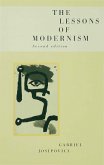A great deal of literature abounds regarding dysfunction and much discourse and media attention is devoted to those who seem to lack an internal moral code. After spending years in the literature of dysfunction, I felt a need to think about mental health from the opposite end of the developmental spectrum. The only logical way to approach the question, for me, was through the process of interviewing some people who seemed to be polar opposites of those I had formerly worked with in a therapeutic setting. I wanted to know more about how some people s moral code developed and what situations or events taught these social and political exemplars the most about right and wrong. My goal was to learn more about prevention in order to avoid the need for intervention. In the end, I wanted to learn more about how to help children in k-12 schools develop a moral sense that is inclusive and supports a democratic foundation of living in communion with others.
Bitte wählen Sie Ihr Anliegen aus.
Rechnungen
Retourenschein anfordern
Bestellstatus
Storno








